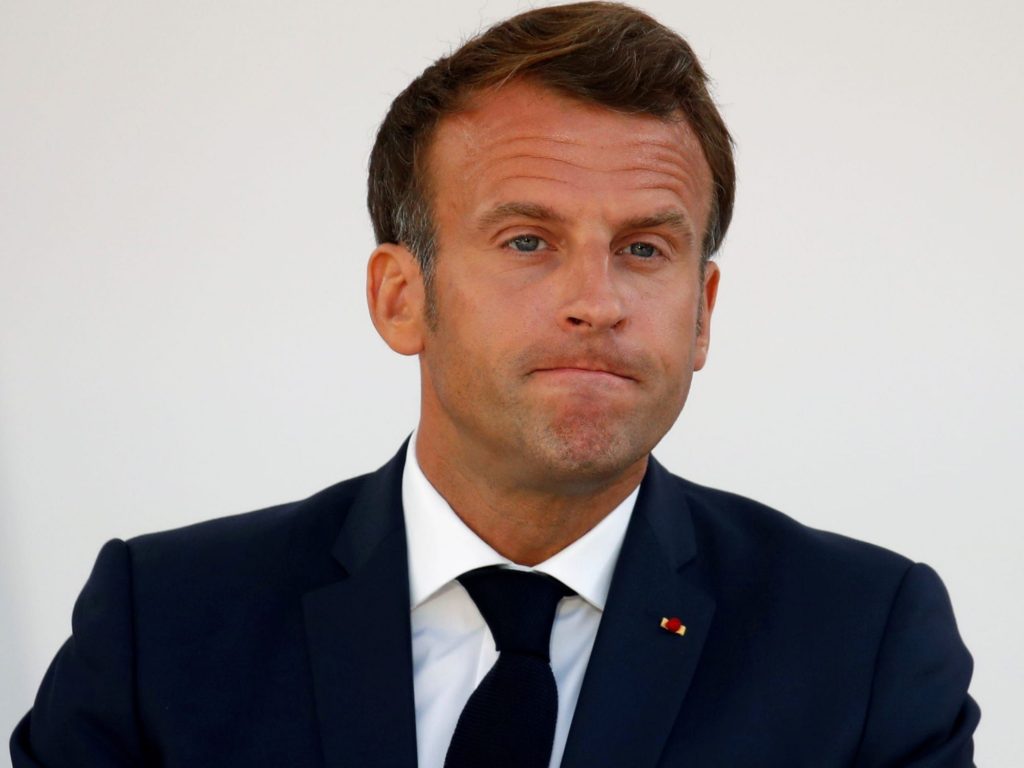[ad_1]
French President Macron. Reuters
Diplomatic tensions between Turkey and France are rising with the European Commission calling on Turkey to refrain from verbal attacks.
French officials have stated that religious sites are on “high security” after protests have grown across the Middle East and Muslim world.
Charlie Hebdo also published a cartoon mocking Turkish President Erdogan.
Now under a second COVID-19 lockdown, French Muslims and anti-racism activists worried about a rise in hate crimes as a result of diplomatic tensions and new Charlie Hebdo row.
Visit Business Insider’s homepage for more stories.
After French school teacher Samuel Paty was decapitated by a Chechen Islamic extremist in France days after Paty showed caricatures of the Prophet Muhammad to his pupils, French President Emmanuel Macron stated that Islam was “in crisis” and that he would fight “Islamist separatism” in France, prompting international outcry.
Speaking at the French schoolteacher’s wake last week, Macron called Paty a “quiet hero” of the French republic and added that France would continue to produce the cartoons and defend anyone’s right to do so.
In Montpellier and Toulouse, local officials projected the Charlie Hebdo caricatures of Prophet Muhammad onto their town halls as an act of solidarity.
In response to the defense of the caricatures, numerous heads of states in the Arab and Muslim world have called for the boycott of French goods, and protests have been held globally against what detractors are calling an incitement of Islamophobia by the French president.
The French Foreign Ministry called for an end to the boycott and “blackmail” on Monday.
The reaction to Macron’s defense of the cartoons is linked to his recent announcement of laws in early October, which would enable local french officials to surveil mosques more tightly, and require Islamic institutions and officials in France to sign “secular charters” in order to prove that they are not influenced by foreign sources.
Story continues
After Samuel Paty’s gruesome death, the legal package is seen to have gained popularity, and after protests and the call to boycott French goods have grown globally, French officials have tightened security around religious sites, urging French nationals living abroad to refrain from attending anti-Macron protests for their own safety.
Speaking to French outlet Libération, French Interior minister Gérard Darmanin has implicated organizations like the Collective for the Fight Against Islamophobia in France (CCIF), arguing that they should be dissolved because the organization “considers there is a state Islamophobia all the while being subsidized (financially) by the French state.”
In response to Darmanin, CCIF and over 70 European civil liberties organizations signed a letter pushing back.
CCIF reported that in 2019, there were nearly 800 anti-Muslim acts in France, a figure almost twice as high as their tracking two years prior. The European Network against Racism added that “the focus on a certain form of exclusive ‘laicité’, or secularism, is leading to the exclusion of many Muslims, and in particular visibly Muslim women.”
Advocates say that Macron’s administration has repeatedly spoken out against “radical Islam” without acutely defining it, implicating many moderate Muslims. ENAR added that headscarf and Burkini bans had a similar chilling effect of policing religious freedom in the name of secularism.
In the week since the murder of Paty, two Hijabi women were stabbed by non-Muslim French women in Angers, France, over their Hijabs and because they were speaking Arabic, France 24 reported.
Protests have been held in countries like Turkey, Bangladesh, and Saudi Arabia, and a full blown diplomatic row has simmered between France and Turkey.
A spokesman for the European Commission discouraged Turkish President Recep Tayyip Erdoğan from advancing the boycott of French goods, stating that it “will take Turkey even further away from the European Union.” Erdoğan called for Macron to undergo “mental checks” for sharing and defending the caricatures of the Prophet Muhammad, an act which is considered blasphemous in Islam.
Pictures of supermarkets in Kuwait and Qatar emptying their shelves of French products have spread across social media. The Kuwaiti Union of Consumer Co-operative Societies stated that nearly all of it’s 69 stores pulled products made in France.
France called for Turkey to be censured at the next EU summit, a spat which is increasingly threatening Turkey’s hopes of inclusion in the European Union.
Today, Charlie Hebdo shared its weekly cover, featuring a buffoonish depiction of Erdogan and a half-naked veiled woman with the caption, “Erdogan, in private he is more fun.”
“I condemn this incorrigible French rag’s immoral publication concerning our president,” Turkey’s Vice President Fuat Oktay responded on Twitter, calling on the international community to speak out against the new cover.
Turkey and France, both NATO allies supporting opposing sides of the Nagorno-Karabakh conflict, have continued to escalate their diplomatic row.
Read the original article on Business Insider
[ad_2]
Source link
